Diclosave 100mg Tablet contains Diclofenac Sodium, a non-steroidal anti-inflammatory drug (NSAID) widely used to relieve pain, inflammation, and swelling. It works by inhibiting prostaglandins, the chemical messengers responsible for pain and inflammation. Diclosave is commonly prescribed for arthritis, musculoskeletal pain, and post-surgical discomfort.
Ingredients
-
Diclofenac Sodium 100mg.
Drug Class
Non-steroidal anti-inflammatory drug (NSAID).
Dosage Form
Tablet
Uses
Diclosave 100mg Tablet is used for:
-
Rheumatoid arthritis.
-
Osteoarthritis.
-
Ankylosing spondylitis.
-
Musculoskeletal pain.
-
Acute gout.
-
Chronic juvenile arthritis.
-
Pain and inflammation after injury or surgery.
Dosage
-
Take as prescribed by your doctor.
-
Usually recommended with meals or milk to minimize stomach irritation.
-
Do not exceed the prescribed dose.
In Case of Overdose
Overdose may cause severe abdominal pain, vomiting, dizziness, fainting, or gastrointestinal bleeding. Seek emergency medical attention immediately.
Missed Dose
Take as soon as remembered, unless it is almost time for the next dose. Do not double the dose.
How To Use
-
Swallow the tablet whole with a glass of water.
-
Take with food or milk to avoid stomach upset.
-
Maintain adequate hydration unless restricted by your doctor.
When Not to Use
Do not use if you:
-
Are allergic to diclofenac, aspirin, or other NSAIDs.
-
Have active peptic ulcers or gastrointestinal bleeding.
-
Have severe liver, kidney, or heart disease.
-
Have a history of proctitis or hematologic abnormalities.
Side Effects
Common side effects include:
-
Stomach upset, indigestion, abdominal pain.
-
Headache or dizziness.
-
Swelling in ankles or feet (edema).
-
Skin rashes or allergic reactions.
-
Rare but serious: ulcers, liver or kidney impairment, blood disorders.
Precautions & Warnings
-
Use with caution in patients with a history of gastric ulcers, liver, kidney, or heart conditions.
-
Avoid alcohol, as it increases the risk of gastric bleeding.
-
Regular monitoring of liver function and blood counts is advised for long-term use.
-
Not safe during pregnancy or breastfeeding unless clearly recommended by a doctor.
-
Avoid driving or operating machinery if dizziness occurs.
Drug Interactions
Diclosave may interact with:
-
Anticoagulants (warfarin, heparin).
-
Corticosteroids.
-
Diuretics and antihypertensives.
-
Methotrexate, lithium.
-
Other NSAIDs or aspirin.
Storage/Disposal
-
Store at room temperature away from heat and moisture.
-
Keep out of reach of children.
-
Dispose responsibly; do not flush in drains.
Control Drug
No
Quick Tips
-
Take with meals to reduce stomach irritation.
-
Stay hydrated during therapy.
-
Avoid long-term use unless advised by a doctor.
-
Stop immediately if you experience severe stomach pain, blood in stool, or signs of allergy.
Doctor’s Review
Dr. Kamran Siddiqui, MBBS, FCPS – Rheumatology
“Diclosave (Diclofenac) is used for arthritis and severe musculoskeletal pain, helping reduce stiffness, swelling, and discomfort. While effective, it requires caution in patients with ulcers, kidney problems, or heart disease. Taking it with food and monitoring for stomach pain or bleeding are important for safe use.”
Disclaimer
This information is provided for educational and reference purposes only. Diclosave 100mg Tablet must not be used as a substitute for medical advice. Always consult a qualified physician before starting, adjusting, or discontinuing this medication.

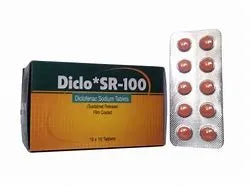
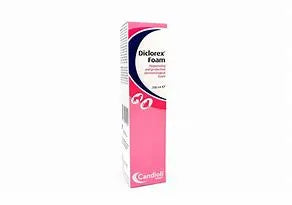
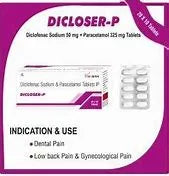
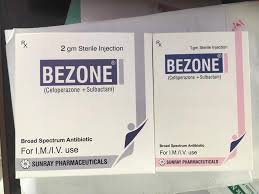
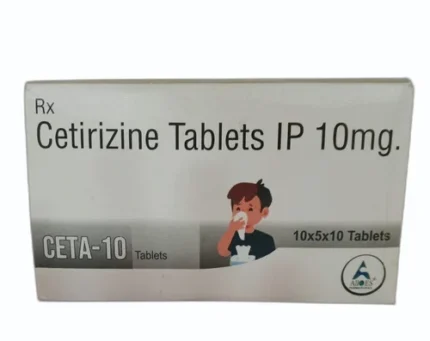
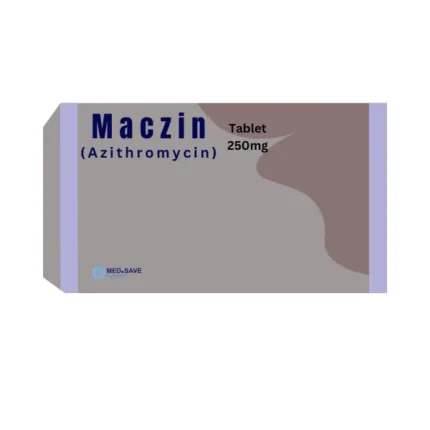
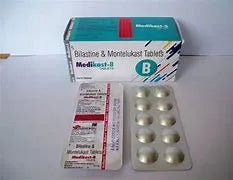
Reviews
There are no reviews yet.